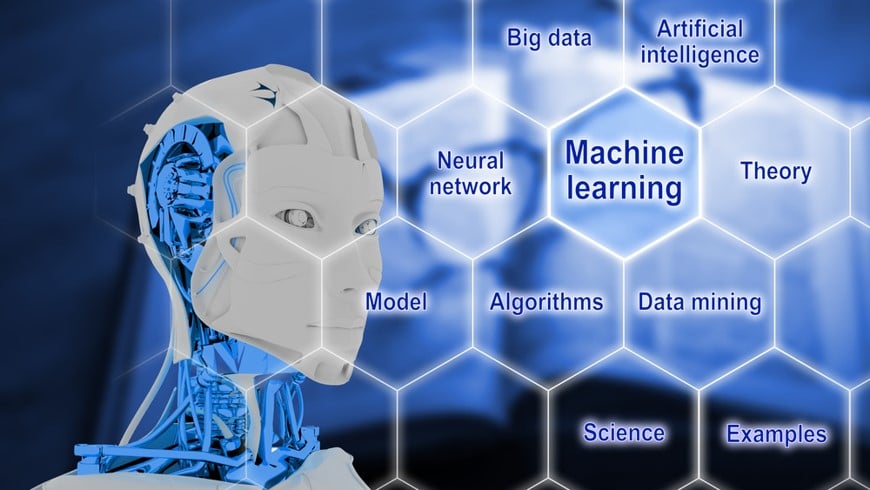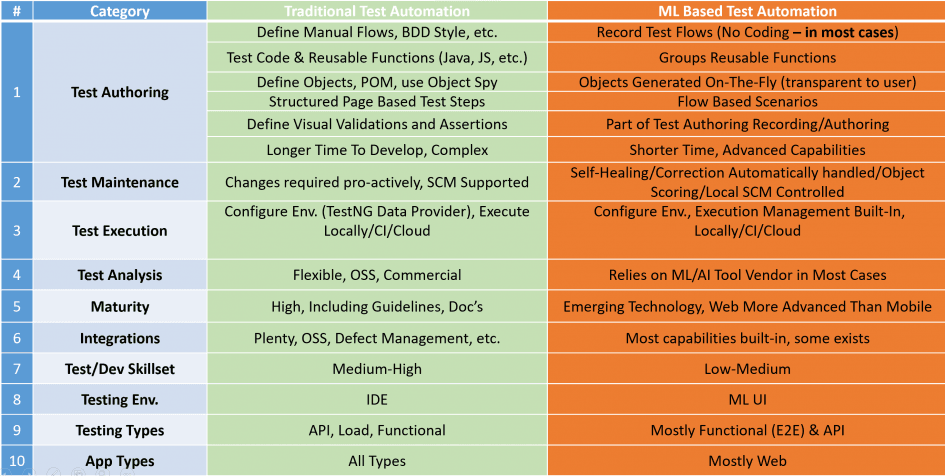Codeless and ML-Based Automation vs. Traditional Test Automation
There’s no doubt that the test automation space is undergoing transformation. Machine Learning (ML), Deep Learning and Artificial Intelligence (AI) are being leveraged more and more as part of the test authoring and test analysis.
While the space is still growing from a maturity stand-point, it is a great time for practitioners (developers and test engineers) to start understanding the key use cases and implications of ML/AI on the overall test automation.

Organizations today look at ML and AI to help solve and remediate issues around the following:
- Object recognition and handling dynamic object locators
- Transcribe speech – Accessibility and similar use cases
- Make quality related decisions based on data
- Identify Trends and/or Patterns within the DevOps pipeline
- Security use cases – Identify signatures in apps and documents e.g.
Not all ML/AI solutions offer codeless test authoring, there are solutions like Test.AI that offer AI capabilities for appium test coding through additional lines of code.
My colleague Uzi Eilon (CTO at Perfecto) and myself prepared the following comparison table showing some diffs in the workflow and skills that are required to use ML/AI codeless (in most cases) test automation tools and traditional test frameworks like Selenium, Appium, Espresso etc.
As can be seen in the above table, there isn’t one solution that is better than other, but rather a set of requirements a practitioner or a team needs to address prior to either switching to a new model or sticking with the current (or combining both).
To highlight few benefits for codeless testing we can look at the speed of test authoring, lower bar from a skillset perspective, more stable test scenarios due to self-healing code and object identification etc.
To highlight benefits from the traditional test automation space, we can look at mature space, better integrations and open-source hooks, higher skillset that enables greater coding flexibility, advanced testing types and support for all kind of apps.
Bottom Line
In this blog there is no decision or bottom line other than – be familiar and aware to the market transformation, start thinking of the use cases that slows you down and see which tools in the AI/ML space can be used to aid these pains.
| Published on Java Code Geeks with permission by Eran Kinsbruner, partner at our JCG program. See the original article here: Codeless and ML-Based Automation vs. Traditional Test Automation Opinions expressed by Java Code Geeks contributors are their own. |





